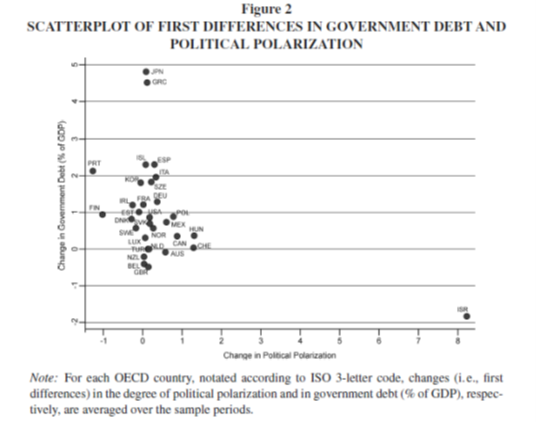
ABSTRACT
Existing politico-economic theories offer two mutually conflicting predictions on whether an increase in the degree of political polarization entails a rise or a decline in government debt. This article estimates the effect of political polarization on government debt, utilizing panel data of the OECD countries from 1962 to 2015. The empirical analysis finds that an increase in the degree of political polarization leads to an increase in government debt, which provides supportive evidence for Alesina and Tabellini (1990) and the like. This finding remains the same across different estimation models, without and with instrumenting the explanatory variable of political polarization.
KEYWORDS
Political polarization, Government debt, Government spending
JEL CLASSIFICATION
H63, E62, D78
Review of Public Economics
https://hpe-rpe.org/wpfd_file/does-political-polarization-lead-to-a-rise-in-government-debt-2/
